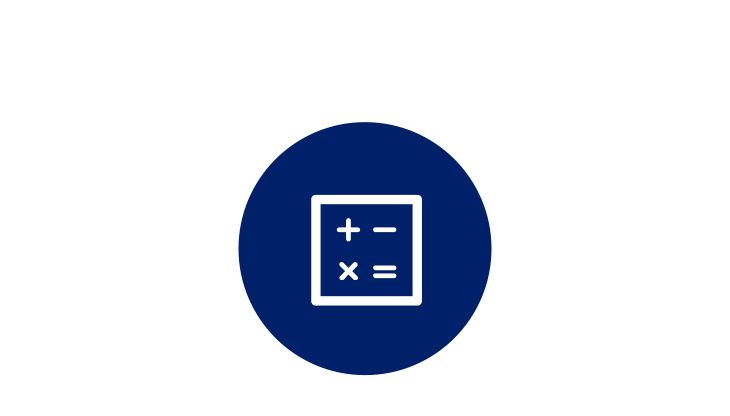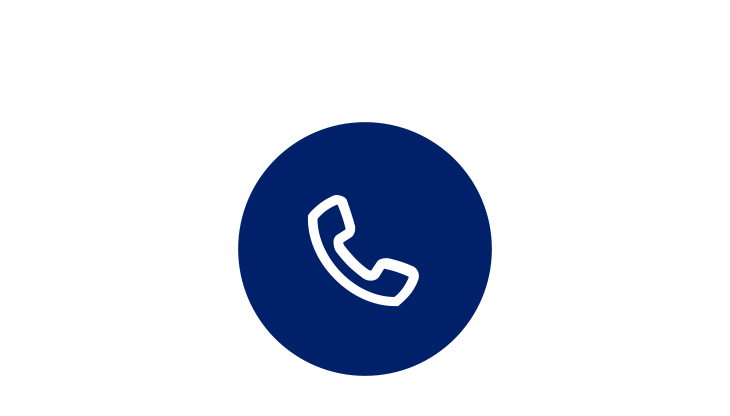New To Canada Banking
New To Canada Banking
You belong in a community that makes you feel welcome. You belong in your very own home. You belong at a Credit Union that understands your needs. You belong here!
What do you want to learn about today?
Products and Services

Daily Banking Accounts
Earn interest, pay bills or bank online. We have chequing and savings accounts that suits your needs.

Home Mortgages
New to Canada with limited credit history? We have the solution. Speak with a lender to discuss your options today.

More Ways To Bank
Bank with convenience using our mobile app, and save money with no fee ATM's.
How To Bank In Canada
Opening a bank account (also referred to as a chequing/savings/personal/deposit account) is an important step in your newcomer journey and should be one of the first things you do upon arrival in Canada. A bank account will allow you to deposit and access your money in order to pay bills and save for the future.
The type of account will depend on your needs and how you intend to use the account. Whether your goal is to pay bills, save money or earn interest, financial institutions offer a variety of accounts for daily banking and/or long-term savings. Before you open your account, you will want to consider account fees that may be charged, whether a minimum monthly balance is required and the interest you may earn on the account. Your financial institution will be able to provide advice on which account will work best for you.
To read more information on the different types of accounts offered by financial institutions, visit the Government of Canada website.
To view the different types of accounts offered at Fusion, click here.
To open an account, visit a financial institution located in your community. Most financial institutions also offer the ability to open an account online through their website. To open an account, the financial institution must be able to confirm your identity through proper identification. There are two ways that allow you to meet the identification (ID) requirements.
(1) Provide two documents from a reliable source:
- one document indicating your name and address
- the other document indicating your name and date of birth
The two documents of identification must be from the following list:
- identification issued by the Government of Canada or the government of a province
- recent notices of tax assessments issued by the Government of Canada or the government of a province or municipality
- recent statements of benefits from the Government of Canada or the government of a province
- recent Canadian public utility bills
- recent bank account or credit card statements
- foreign passports
(2) Provide any document from a reliable source that indicates your name and date of birth. This way works only if your identity is also confirmed by:
- a customer who is in good standing with the bank, or
- someone who is of good standing in the community where you are opening the account.
All documentation must be the original form. Photocopies are not accepted.
The Government of Canada website provides more detailed information on how to bank in Canada, including:
- Transferring products and services
- Online banking
- ATM fees
- Pre-authorized debits
- Using debit cards
- And much more...
What Is A Credit Union?
Credit Unions are a type of co-operative financial institution that are owned and operated by the people (called members) who use their services. When you bank with a credit union, you are a member and an owner, not just a number. Opening an account with a credit union, such as Fusion, requires the purchase of a membership. As a member, you have a say in how the credit union is operated.
At a credit union, the board of directors is elected by members and each member has one vote. It doesn't matter how much money you have invested in the credit union - all members have an equal say. In contrast, most banks operate as a publicly traded company and the board of directors are nominated and elected by shareholders. These shareholders usually hold one vote for each share they own, meaning larger shareholders have more control over the bank. At a credit union, the shareholders are the members.


The money credit unions make is invested in member benefits such as enhanced services, higher interest rates on savings and lower interest rates on loans. Dedicated to their success, credit unions treat all members with the same consideration and respect regardless of where they live, how they earn a living or how much money they have in the credit union.
Credit unions put the communities in which they serve at the center of every policy and every decision. In the true spirit of co-operation, money that members have on deposit with their credit union is lent out to other members, adding to the growth of local communities by being invested in businesses and the local economy. In addition, as a community supporter, credit unions contribute to local non-profits and organizations in the form of grants and donations.
All members of a cooperative share in the profits that are made each year by the credit union. The profits of a credit union are invested back into the credit union or, if declared by the board of directors, are paid out to members in the form of patronage, cash-payouts or dividends.
Every penny that members deposit into an account at a credit union is guaranteed without limit by the Deposit Guarantee Corporation of Manitoba. Since Manitoba's first credit union opened in 1937, no member has ever lost any deposit or interest earned at the contracted or posted rate on a deposit.
Credit unions are guided by seven cooperative principles:
1. Voluntary and open membership
2. Democratic member control
3. Member economic participation
4. Autonomy and independence
5. Education, training and information
6. Cooperation among cooperatives
7. Concern for community
How To Buy A Home In Canada
Ready to own your first home in Canada? Whether you are buying a home to settle down, start a family or build financial equity, there are many factors to consider before you take the first step.
The first question to ask yourself is....are you ready for home ownership? Buying a home is one of the biggest purchases you will ever make. Ask yourself these questions to determine if you are ready to own a home.
- Are you financially stable?
- Do you have the financial capability and discipline to handle the management of buying and owning a home?
- Are you aware of the costs associated with buying and owning a home?
 Costs of Purchasing a Home
Down payment
Taxes
Fees
Home inspections
Moving costs
Setting up utilities
Furniture and appliances
|
 Ongoing Costs of Owning a Home
Mortgage payments
Property taxes
Insurance
Utility bills
Routine maintenance and repairs
|
 Major Repairs
Replacing shingles
Replacing siding
Building a backyard fence
Foundation repairs
Building a sidewalk
|
Paying for a home is a large expense and most times requires a loan, called a mortgage. Financial institutions will lend money to individuals to help finance the purchase of a home. The mortgage is repaid back to the financial institution over a period of time, usually 25 years. In return, financial institutions will charge interest for the loan, which is considered the cost of borrowing money.
Before house-hunting, it's always a good idea to meet with a lender at a financial institution to discuss your needs. A lender can provide a mortgage pre-approval, which is a commitment to provide a mortgage up to a specified amount with terms and conditions and the interest rate. Having pre-approval lets you know how much you can spend on a house before you go house hunting.
Without a credit history in Canada, newcomers may find it hard to obtain a mortgage. However, Fusion Credit Union offers mortgages through the Canadian Mortgage and Housing Corporation, which will take other factors into consideration besides traditional credit history.
Real estate agents are professionals who help individuals buy and sell homes and other buildings. When searching for a home, these agents will show houses that are for sale and negotiate with the seller on the buyer's behalf.
Buying insurance for your home and personal property protects you from potential financial loss due to fire, flood and other natural disasters. In addition, personal liability insurance protects you in the event of an accident, in or out of your home, that results in bodily injury or property damage that you are held legally responsible for.
An insurance broker can advise on the type of insurance you will need and can provide a quote on the cost of obtaining the insurance.
How To Build Credit History
Building and maintaining a credit score is important when trying to obtain a mortgage or loan in Canada. As a newcomer in Canada, unfortunately, financial institutions may not have access to credit history in another country. It's important to start building credit history as early as possible in Canada.
Below are ways to start building your credit history:
- Open a bank account at a financial institution and use it regularly.
- Pay your bills on time. These bills can include rent and utilities such as phone, hydro and TV.
- Apply for a credit card at your financial institution. Start with a small credit limit and pay your minimum payment or card balance each month.
- Apply for a small loan at your financial institution and consistently make your regular, monthly payments.
- Stay with the same employer for an extended period of time.
A credit report is a summary of how an individual pays their financial obligations. The report contains information on borrowing and repayment activity. Financial institutions use a credit report to verify information and assess the likelihood that an individual will pay off a loan or debt.
A credit score shows how well an individual manages credit and pays bills on time. The actual score is a number that can range from low (near 300) to high (850 or 900). The higher the score, the greater the chance the individual will pay off their debt.
Financial institutions and other lending organizations send lending information to credit bureaus when individuals borrow money or apply for credit. There are two main credit bureaus in Canada - Equifax and TransUnion.
For more information on credit in Canada, visit the Government of Canada's website.
Ready to get started?

Tools and calculators
Plan your finances in advance. We have a variety of tools and calculators to help you plan for today and tomorrow.

 Search
Search







 www.google.com
www.google.com








